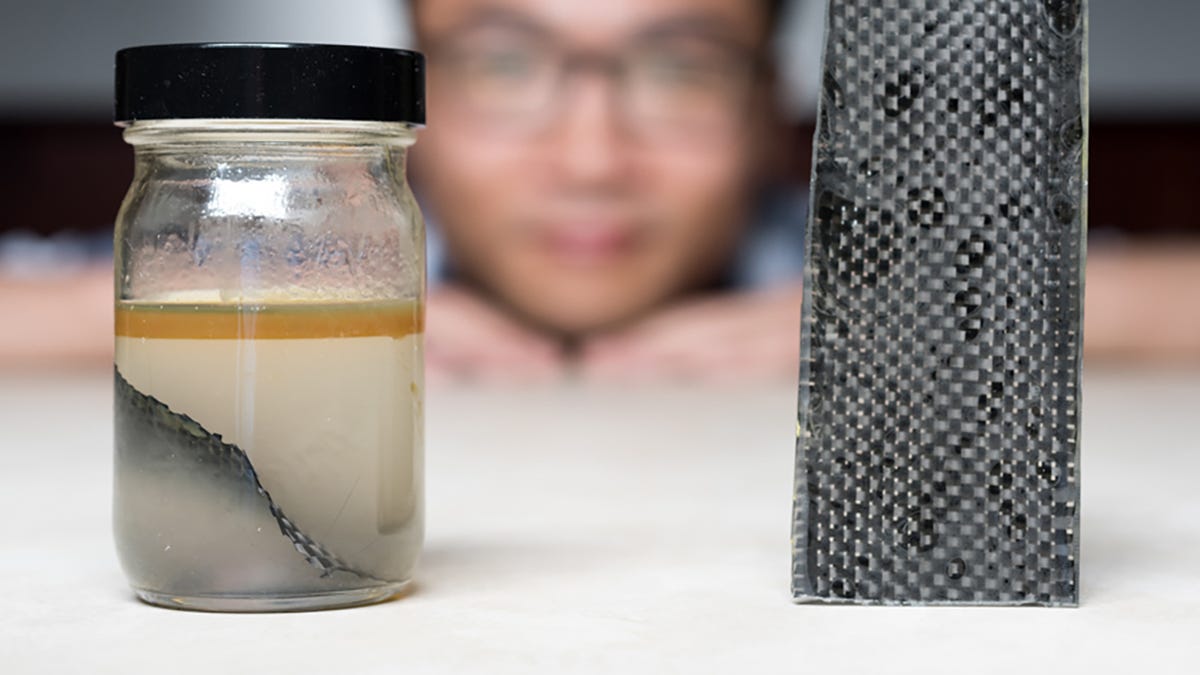Blame it on the alcohol: Researchers discover how to recycle carbon fiber
Here is yet more proof that alcohol solves all sorts of problems.

No, this doesn't mean you'll be able to score a sweet deal on a McLaren in five years' time.
Carbon fiber is a great, albeit expensive material to use in the transportation industry. It's light, it's strong, and it also happens to look pretty neat. But, because of how it's created, it's a pain in the tokus to recycle. Thankfully, the Georgia Institute of Technology has found a way to make it work.
Georgia Tech researchers have turned to an alcohol-based solvent to reclaim fibers that would otherwise head to the trash heap. By soaking carbon-fiber composites in this solvent, the actual carbon fiber separates from the epoxy that holds everything together. From there, both the carbon fiber and the epoxy can be reused in new ways.
Carbon fiber is typically produced using sheets of fibers, which are set into a mold. The sheets are then covered in a resin or epoxy that cures, hardening the material in the desired shape. Clean up the edges, polish the hardened epoxy, and boom -- fresh, and fresh-looking, carbon fiber parts.
This recycling process doesn't work for all types of carbon fiber components, though. Georgia Tech focused on carbon fiber parts created using a vitrimer epoxy. "Vitrimers contain dynamic bonds that can alternate their structure without losing network integrity under certain conditions," said Kai Yu, a postdoctoral researcher at GT. "We let alcohol, which has small molecules, to participate in the network of alternating reactions, which effectively dissolved the vitrimer."
Being able to recycle carbon fiber could have a positive effect on the industry. The process is simple, so researchers believe it can be scaled up easily for industrial-size efforts. It should also help cut down on the amount of worldwide waste produced, even if it's only a few tons' worth.

